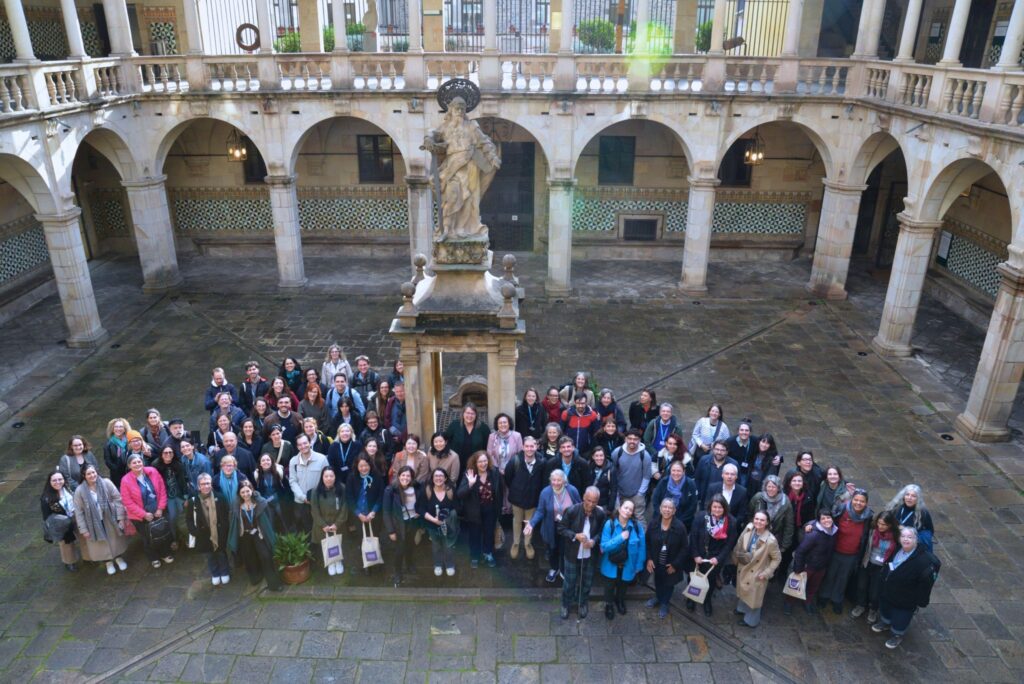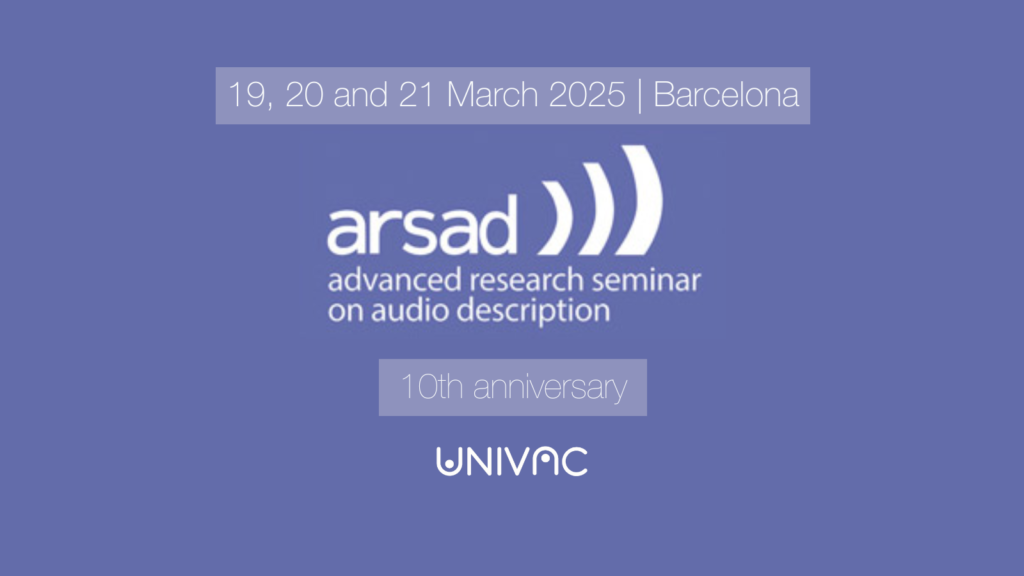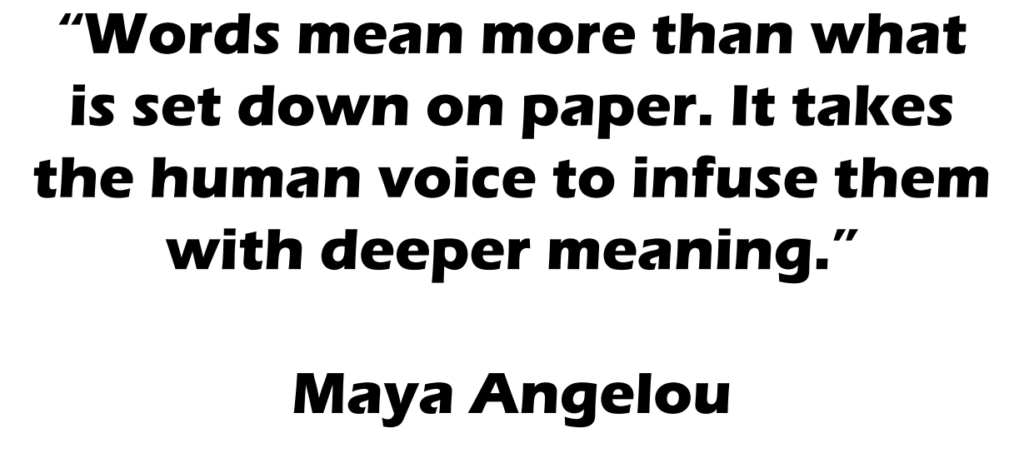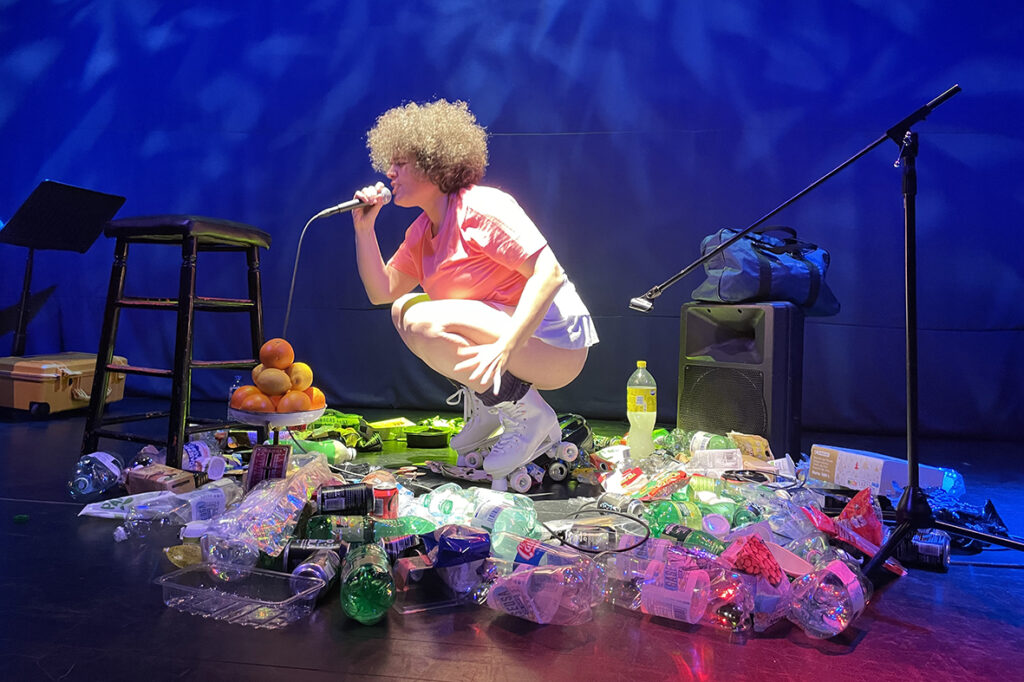liminal at the Advanced Research Seminar on Audio Description (ARSAD)

Every two years, Barcelona hosts the world’s largest conference on Audio Description, an initiative launched by Anna Matamala, an associate professor at Universitat Autònoma de Barcelona. This year, liminal was there, taking part among the biggest names in Audio Description!
What is the ARSAD

Every two years, a vibrant community of researchers, industry professionals, trainers, trainees, users, practitioners, broadcasters, policymakers, activists, cultural managers, and anyone interested in Audio Description (AD) comes together to reflect on its past, present, and—most importantly—its future. For three days, people from around the world share the latest developments in Audio Description: academic research, experimental applications, best practices, and cutting-edge advancements in both theory and practice. They discuss what has happened, what is happening, and what lies ahead
Our participation armed us with innovative tools and methodologies for museum and art space accessibility, novel approaches to accessible live/digital performances, and experimental AI-driven models – the latter being the conference’s main focus this year.
Our highlights from ARSAD

Certainly, Professor Sabine Braun’s (University of Surrey) talk set the tone for Artificial Intelligence in Audio Description. While we indeed observe massive improvements in production quantity, the results raise serious quality concerns. Through concrete examples and different application models, she pinpointed the tools’ weaknesses – particularly for live performances and streaming platforms, but also for the daily available user-generated content.
However, as Matthew Kaplowitz (Bridge Multimedia) aptly noted, “AI is like a child: it knows nothing, but can learn with startling ease.” In an excellent speech on AI prompting, he demonstrated how such tools can prove vital in emergencies—where human data processing might take twice as long, potentially failing to meet critical deadlines.
In his presentation, Audio Description pioneer Joel Snyder – arguably the field’s most experienced professional – examined both its applications and inherent dilemmas.
Joel Snyder was invited by liminal to Athens in 2019 for the program "The Image in Words: 11 Days on Audio Description." Learn more here.
Among other insights, drawing on his own experience as a voice talent for audio descriptions, he eloquently highlighted the differences in tonal nuances and the human voice’s unique ability to follow a narrative flow—compared to synthetic voice models, which, despite advances, still fall short of the subtle sensitivity of human speech.

Beyond the use of artificial intelligence, the conference also sparked a major dialogue on applied and experimental models of Audio Description—exploring methodologies and approaches that test the boundaries of objectivity and subjectivity. These innovations move toward personalized solutions addressing user needs, while also developing tools that enhance content accessibility through alternative pathways. Such were the presentations of
- Jessica Beale on the different approaches to Audio Description for guided tours at the London Botanic Garden for visually impaired visitors.
- Mariana J. López’s work with Enhanced Audio Description: facilitating the sensory shift from image to sound in film viewing
- María José García-Vizcaíno who, through the fascinating Blue Project Description, explores accessibility as collaboration and dialogue – and as an opportunity to create deep connection – contrasting with approaches that treat it merely as a service to be provided to the blind and low-vision community.
In this vein, studies were presented highlighting Audio Description’s positive impact on comprehension and inclusion for groups beyond the visually impaired. Particularly interesting contributions in this direction came from:
- Iwona Mazur‘s work on enhancing viewing experiences for mainstream audiences through Audio Description
- Francesca Carpenedo‘s presentation about implementing Audio Description in film screenings for elderly audiences at care institutions
- Maria Andreea Deleanu on film adaptation through Audio Description methodology, aiming for smoother and more enjoyable viewing experiences for neurodivergent individuals.
Accessibility in Barcelona
Alongside these, we connected with Catalan organizations deeply engaged in Audio Description. We attended an accessible performance and discussed pressing issues about creating AD scripts for theater, as well as the challenges of live narration.

With the European Accessibility Act (EAA) coming into force on 28 June 2025, long-awaited changes in audiovisual accessibility will finally take effect. For our part, we welcome the expected increase in available accessible content and commit to maintaining – if not exceeding – our current service quality standards.
